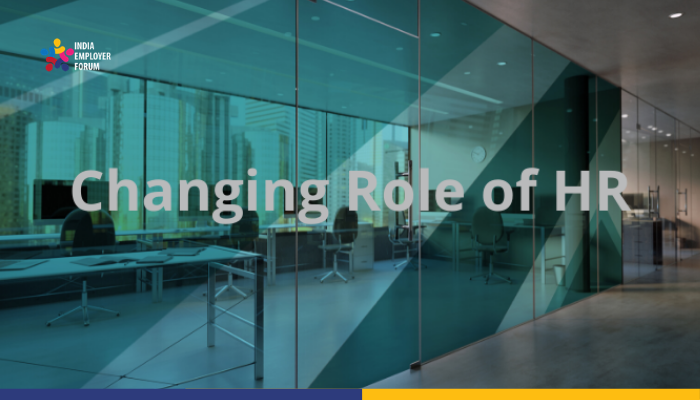The work culture in India has significantly changed over the years due to the influence of the western world. Technology is another contributing factor and its increased penetration is changing the way people work today and in the process changing the future of HR. Businesses have realized with time that the Indian workforce has matured and that they are particular about their morals which have led to the workspace becoming more flexible. The intermingling of baby-boomers and millennials in the workforce has also brought a significant change in terms of the average age, diversity and inclusivity in the workforce.
Human resources is one of the significant functions that has contributed to this evolution. Gone are the days when HR was all about recruiting employees. Today, they are a part of the leadership teams that are driving business and personnel growth, while defining the future of HR. A 2018 report of KPMG relating to the global future of HR points out that the HR leaders in India are more adaptable and flexible to change as compared to their peers from the west. The way organizations conduct business is changing which is giving rise to changes in the workforce. The report mentions that more than 90 per cent of the leaders feel that HR is moving towards a strategic role.
You might also be interested to read: Importance of Strategic Human Capital Plan
With the rising significance of human resources, the role of a Chief Human Resources Officer (CHRO) is becoming crucial. With the constantly expanding scope of operations, the CHROs are also getting recognized for their efforts. To remain relevant and help businesses grow strategically, the CHROs must take good care of different aspects of the human resource management cycle like talent management and retention, recruitment, compensation, employee experience, etc. Besides doing their regular duties, they must also keep their learning game on and help the businesses with their knowledge to define the future of HR.
The growing influence of MNCs in India has also affected the work culture in a better way over the past few decades. Many employees in India who work in MNCs get to enjoy most of the benefits as their global counterparts. However, the employees of some Indian companies still do not get to enjoy the same advantages. The HR managers of these organizations will have to move away from their regular activities to focus on the employee experience. While undertaking human resource planning, they must benchmark the facilities and benefits with those offered by MNCs and define the future of work.
You might also be interested to read: Role of a CHRO – Why Your Company Needs One
They can steer the ship by implementing an HR strategy that is needed to address the growing needs of human resource management. The new-age employees, especially the millennials and Gen Z, need to be handled in a different way as compared to baby boomers. A business that cares for its employees will see much productive results and outcomes as compared to businesses that do not value human resource development.
Reference: The future is now: The changing role of HR, Economic Times, 02 Mar 2019
Related Topics:





